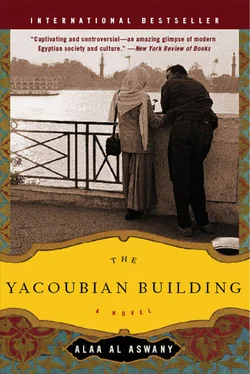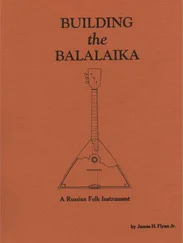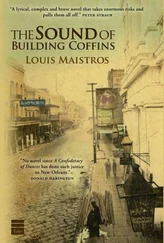Alaa Al Aswany - The Yacoubian Building
Здесь есть возможность читать онлайн «Alaa Al Aswany - The Yacoubian Building» весь текст электронной книги совершенно бесплатно (целиком полную версию без сокращений). В некоторых случаях можно слушать аудио, скачать через торрент в формате fb2 и присутствует краткое содержание. Год выпуска: 2006, ISBN: 2006, Издательство: Adobe Acrobat eBook Reader, Жанр: Современная проза, на английском языке. Описание произведения, (предисловие) а так же отзывы посетителей доступны на портале библиотеки ЛибКат.
- Название:The Yacoubian Building
- Автор:
- Издательство:Adobe Acrobat eBook Reader
- Жанр:
- Год:2006
- ISBN:978-0-06-087813-9
- Рейтинг книги:5 / 5. Голосов: 1
-
Избранное:Добавить в избранное
- Отзывы:
-
Ваша оценка:
- 100
- 1
- 2
- 3
- 4
- 5
The Yacoubian Building: краткое содержание, описание и аннотация
Предлагаем к чтению аннотацию, описание, краткое содержание или предисловие (зависит от того, что написал сам автор книги «The Yacoubian Building»). Если вы не нашли необходимую информацию о книге — напишите в комментариях, мы постараемся отыскать её.
The Yacoubian Building — читать онлайн бесплатно полную книгу (весь текст) целиком
Ниже представлен текст книги, разбитый по страницам. Система сохранения места последней прочитанной страницы, позволяет с удобством читать онлайн бесплатно книгу «The Yacoubian Building», без необходимости каждый раз заново искать на чём Вы остановились. Поставьте закладку, и сможете в любой момент перейти на страницу, на которой закончили чтение.
Интервал:
Закладка:
“What should I do, Master?”
“You must pray and recite the Qur’an. Apply yourself constantly to them, my boy, until God brings you relief and promise me, my boy, that you will not see this young woman again, whatever the circumstances.”
Taha looked at the sheikh and said nothing.
“This is an undertaking between you and me, Taha, and I’m confident that you’ll keep it, God willing.”
The sheikh then rose, opened the drawer of the old desk, took out some pictures from foreign newspapers and threw them in Taha’s lap, saying, “Look at these pictures. Examine them well. These are your Muslim brethren in Iraq whose bodies have been torn apart by the Coalition’s bombs. Look at how the bodies have been rent apart, including those of women and children. This is what they do to Muslims and their children, and our traitorous rulers participate with the unbelievers in their crimes.”
Then the sheikh picked out a photo and held it in front of Taha’s eyes and said, “Look at the face of this Iraqi child, ripped open by American bombs. Is not this innocent child as much your responsibility as your sister and your mother? What are you doing to aid her? Is there still a place in your heart for sorrow over your erring friend?”
The photo of the disfigured child was extremely upsetting and Taha said bitterly, “The children of Muslims are slaughtered in this hideous way, while Egyptian television is crawling with scholars from el Azhar affirming that the Egyptian government’s position is sound in Islamic Law and claiming that Islam supports the alliance with America to strike Iraq.”
For the first time the sheikh showed excitement and his voice rose. “Those scholars are hypocrites and evildoers. They are the pet jurists of the sultans and their sin in God’s eyes is great. Islam absolutely forbids us to participate with unbelievers in the killing of Muslims, whatever the reasons. Any schoolchild doing their first class in the Law knows the authorities for this.”
Taha nodded in agreement with the words of the sheikh, who suddenly said, as though he had just thought of something, “Listen. Tomorrow, God willing, our brothers are organizing a big demonstration at the university. I hope you won’t stay away.”
He was silent for a moment, then went on, “I shan’t be able to lead the demonstration myself, but your brother Tahir will be your commander tomorrow, God willing. The assembly point is in front of the auditorium after the noon prayer.”
Taha nodded, then stood up and asked permission to leave, but the sheikh asked him to wait and disappeared inside for a little. He returned smiling and said, handing him a small book, “This is the Islamic Action Charter. I’d like you to read it, then we can discuss it later. This book, Taha, will make you forget, God willing, all the bad thoughts that haunt you.”

The animals were slaughtered on the Friday morning — three huge bullocks that had spent the night next to the elevator in the lobby of the Yacoubian Building. At the call to the dawn prayer, five butchers fell on them, trussed them, and slit their throats; then they spent hours flaying them, cutting them up, and loading the meat into bags, ready for distribution. No sooner had the noon prayer come to an end than the crowds in Suleiman Basha swelled with troops of people making their way to the Azzam stores. They were extremely poor: beggars, privates in the police force, barefoot boys, and women garbed in black carrying or dragging behind them their small children. All came to take their share of the sacrificial meat that Hagg Azzam was giving away to mark the occasion of his victory in the elections. In front of the main entrance to the store stood Fawzi, Hagg Azzam’s eldest son, in a white gallabiya, taking the bags of meat and throwing them to the people, who had formed a surging crowd and were shoving one another to get at the meat. Fights broke out and injuries occurred, and the store’s employees were obliged to make a cordon and beat the surging people back with their shoes to keep them away from the glass display windows before they broke under the weight of their bodies. Inside, Hagg Azzam sat at the front wearing a smart blue suit with a white shirt and a crumpled red tie, his face beaming with joy.
The results of the elections had been announced officially on Thursday evening, Hagg Azzam winning the People’s Assembly Workers’ seat for Kasr el Nil and scoring a sweeping victory over his opponent Abu Himeida, who obtained only a very few votes (El Fouli had decided that his defeat should be overwhelming and ringing, as an example to anyone else who might disobey his instructions in the future). Hagg Azzam felt a genuine, deep gratitude to God, Almighty and Glorious, who had supplied him, of His bounty and His support, a clear victory. He performed more than twenty prostrations in thankful prayer the moment he heard the news and issued his instructions for the slaughter of the bullocks. He also secretly distributed more than twenty thousand pounds to poor families whose needs he himself took care of and gave a further twenty thousand to Sheikh el Samman to be spent on charitable purposes under his supervision, not to mention the twenty golden guineas he donated to Sheikh el Samman on this occasion.
A different feeling toyed with Hagg Azzam’s heart when he thought of Souad: how should he celebrate his fabulous win with her that night? He reviewed the details of her soft, warm body in his mind’s eye and felt that he truly loved her. He said to himself that the Messenger of God — God bless him and give him peace — was right when he described women as bringers of good fortune. There were indeed some blessed women whom a man had only to take as a partner for him to be inundated with good fortune, and Souad was one of them. She had brought victory and blessing and here he now was, triumphant and about to enter the People’s Assembly. Verily, there was nothing more wonderful than divine providence! He was now the People’s Assembly member for the residents of the constituency of Kasr el Nil, who at one time had held out their shoes to him for him to clean, and looked down on him from above, and generously given him their pennies. Now he was the Honorable Member, enjoying legal immunity, which prevented anyone from taking action against him without the Assembly’s permission. From now on his picture would appear in the press and on television and he would meet every day with the ministers and shake their hands, equal to equal. He was no longer merely a rich businessman, he was a statesman and he would have to deal with everyone on that basis. Starting from now, he would begin the great work that would catapult him to the level of the giants. The next step would take him to the summit; he would be one of the five or six movers and shakers in the whole country provided the deals he was planning in order to move him from the millionaire to the billionaire bracket went through. He might in fact become the richest man in Egypt and become a minister. Yes indeed! Why not? When God is willing, nothing is impossible; hadn’t he dreamed of becoming a member of the People’s Assembly? Money makes short work of problems and brings the distant goal within reach. One day he might achieve a ministry, just as he had the Assembly.
He remained sunk in his ponderings until the call to the afternoon prayer rang out and he led the store’s employees in prayer as usual, even though (and he asked God’s forgiveness for this) his mind did wander more than once as he was praying to Souad’s body. As soon as he had finished the prayer and said his beads, he hurriedly left, entered the Yacoubian Building, and rode the elevator to the seventh floor. What deliciously insistent, burning desire he felt as he turned the key in the door and found before him Souad, exactly as he had imagined her, waiting for him in the red robe that showed off her stunning charms, and that smell of perfume that stole into his nose and tickled his senses! She came toward him with a vampish gait and passion took possession of him as he listened to her footsteps and the rustling of the robe on the floor. Then she took him in her arms and whispered, her lips brushing his ear, “Congratulations, my darling! A thousand congratulations!”
Читать дальшеИнтервал:
Закладка:
Похожие книги на «The Yacoubian Building»
Представляем Вашему вниманию похожие книги на «The Yacoubian Building» списком для выбора. Мы отобрали схожую по названию и смыслу литературу в надежде предоставить читателям больше вариантов отыскать новые, интересные, ещё непрочитанные произведения.
Обсуждение, отзывы о книге «The Yacoubian Building» и просто собственные мнения читателей. Оставьте ваши комментарии, напишите, что Вы думаете о произведении, его смысле или главных героях. Укажите что конкретно понравилось, а что нет, и почему Вы так считаете.












